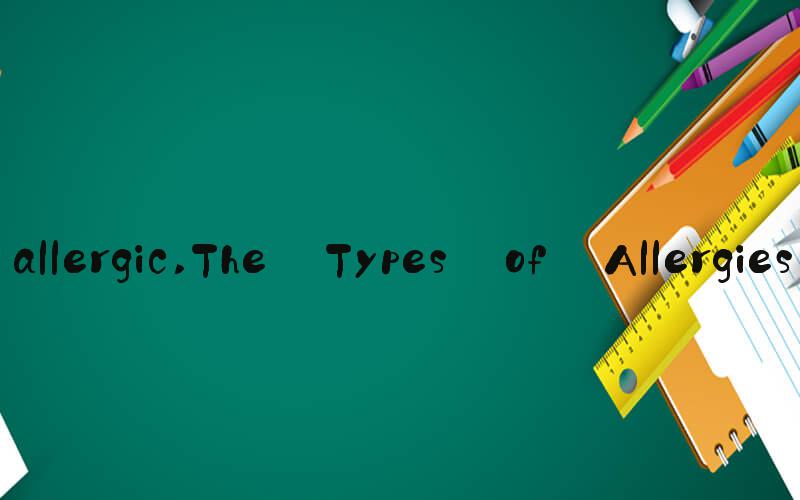 Allergic: Understanding and Managing Your Allergies
Allergic: Understanding and Managing Your AllergiesAllergy is an immune system reaction to a substance that is otherwise harmless to most people. It is estimated that around 50 million Americans suffer from different types of allergies each year. From seasonal allergies to food allergies, allergies can cause various symptoms, ranging from mild to severe. In this article, we will discuss the different types of allergies, their symptoms, and ways to manage them.
The Types of AllergiesThere are various types of allergies, including but not limited to:
Seasonal allergies (pollen, grass, ragweed, etc.)
Dust mite allergies
Animal allergies (pet dander, saliva, etc.)
Insect allergies (bee stings, mosquito bites, etc.)
Food allergies (peanuts, milk, shellfish, etc.)
Drug allergies (penicillin, aspirin, etc.)
The symptoms of allergies can range from mild to severe. Some common symptoms include itchy eyes, runny nose, sneezing, skin rashes, hives, stomach cramps, and difficulty breathing. In severe cases, allergies can lead to anaphylaxis, a life-threatening reaction that can cause rapid swelling of the throat, tongue, and other parts of the body, making it difficult to breathe.
How to Manage AllergiesWhile there is no cure for allergies, there are ways to manage and alleviate the symptoms. Here are a few tips to help you manage your allergies:
Avoid allergens: The best way to prevent allergy symptoms is to avoid the allergens that trigger them. If you have a pollen allergy, try to stay inside during peak pollen season. If you have a food allergy, read labels carefully and avoid eating foods that contain the allergen.
Take medication: Antihistamines and decongestants can help alleviate allergy symptoms, but they should only be taken under the guidance of a healthcare professional.
Immunotherapy: This involves receiving regular injections of the allergen to build up your tolerance and reduce your sensitivity to it over time.
Air filters: Air filters can help remove allergens from the air.
Allergy shots: Allergy shots are an effective treatment for severe allergies. They involve getting regular injections of the allergen in gradually increasing doses to desensitize the immune system.
Emergency medication: If you have a severe allergy, carry emergency medication, such as an epinephrine auto-injector, at all times.
The Bottom LineAllergies are a common condition that can cause a range of symptoms, from mild to severe. It is essential to understand the different types of allergies and learn how to manage them effectively. If you suspect that you have an allergy, speak to your healthcare professional. They can help diagnose your allergy and recommend treatment options to alleviate your symptoms.
By taking the necessary precautions and working with healthcare professionals, you can take control of your allergies and enjoy a higher quality of life.
